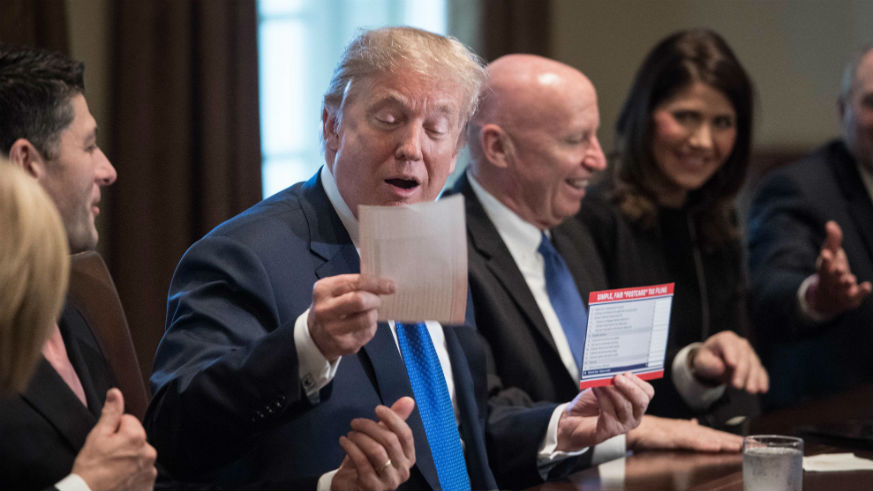One of the major provisions of the newly released Republican tax reform bill, The Tax Cuts and Jobs Act, is a repeal of the estate tax.
What is the estate tax?
The estate tax is a tax assessed on the value of a person’s estate after their death, which is paid by the person or entity that is inheriting that estate. It was established in 1916, three years after the 16th Amendment created the income tax. The estate tax only applies to people with estates worth $5.5 million or more, or 11 million for married couples. “Most people — as in more than 99.5 percent of people — don’t pass away with that much in assets,” writes the Washington Post. Roughly 2.7 million Americans die each year, and only 11,310 people are expected to pay an estate tax.
What are the pros and cons of the estate tax?
The New York Times describes the estate tax’s history as “long and controversial.” Proponents of the estate tax say it’s a crucial source of government revenue. Those opposed say it penalizes savers and the ability of Americans to pass their property down to their children.
What is the current estate tax rate?
The current maximum estate tax rate is 40 percent. The tax kicks in on the value of the estate above $5.5 million. For example: If an estate is worth $5,000,001, tax would only be due on $1. Because of deductions and bequests, half of those eligible to pay estate tax end up paying nothing, according to the Post.
Who would benefit from ending the estate tax?
The ultrawealthy. Gary Cohn, the chairman of President Trump’s National Economic Council, says repealing the estate tax is burdensome to small businesses and family farms. The Post says this is untrue because of the reasons above, and it only applies to very successful small businesses and farms: “The rhetoric from estate tax critics might lead you to conclude that all or most of those 5,460 estates [that pay estate tax each year] are from family farms or small businesses. But the Tax Policy Center’s analysis says that’s very far from the truth,” the paper says. “By that definition there are a total of 80 ‘small’ businesses or small farms paying the estate tax each year,” according to the Tax Policy Center. “Small businesses and farms, in other words, account for roughly 1 percent of all estates that owe any estate tax.”
How much does repealing the estate tax cost?
The Republican plan would immediately double the estate tax deduction and phase out the estate tax to zero by 2024, CNBC says. The Atlantic reports that $19 billion in estate tax was collected in 2015, out of $1.4 trillion in income taxes overall.



















